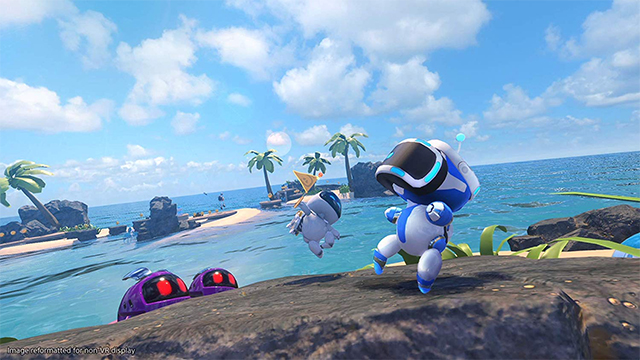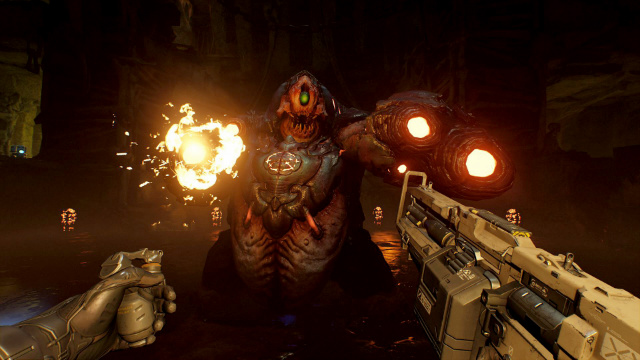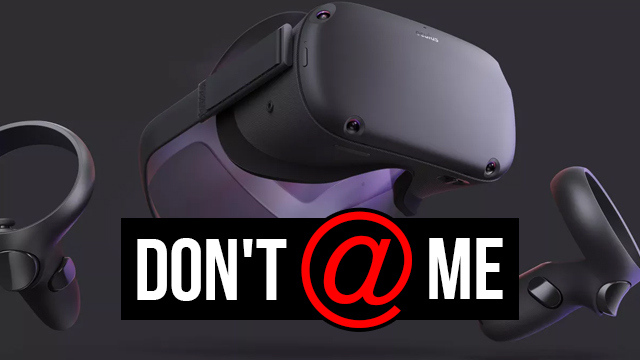This past month saw the three-year anniversary of virtual reality as a major gaming platform. Both the Oculus Rift and the HTC Vive released in 2016 alongside a whole host of unique and creative experiences like Job Simulator, Superhot VR, and Beat Saber. Fans of these games rave about their time playing these like few other virtual reality experiences. For some VR enthusiasts, gaming without full immersion just isn’t the same anymore. Chances are, you’re not one of these enthusiasts, and there’s a good reason for that. Unless you’re lucky enough to be rolling in dough, a dedicated VR setup is probably too expensive to matter.
A problem of scale

That’s not to say VR is out of reach. Most people will have had experience with cell phone VR or PlayStation’s headset. These are the affordable options, and you can feel the limitations of that price drop. It’s still a thrilling novelty, but it doesn’t have the drawing power that more powerful hardware provides. Once you get over that initial excitement, you’ll probably be more than happy to return to your normal couch gaming.
Companies of all sizes have tried to solve this problem with their next generation of hardware. Oculus, in particular, is trying to combine the power of the Rift with the portability of the Gear VR. The resulting Quest seems like the ultimate solution as it is a powerful device that’s not tied to a computer desk. However, coming in at $400 (the same price as a current Rift) means that it’s not helping drive people to the platform the way it needs to. It’s almost as if Oculus is starting over instead of driving forward with cheaper VR that will bring in more people. Pushing forward is great but not when it isn’t also moving down in price.
Mounting a Rescue Mission

It’s a paradoxical problem. Few are going to spend enough to have a VR platform, because the software just isn’t there, despite some promising titles. We’ve seen quite a few killer apps in the last three years, but nothing that demands your attention like God of War or Super Mario Odyssey.
At the current price, you need that type of experience to get people excited. On the flip side, you won’t get that type of experience without an audience ready to receive it. No one is going to put the years of manpower in for a game like that without a proven track record of success.
Look at what happened this past holiday season. Sony recognized an opportunity after releasing the well-received Astro Bot Rescue Mission and priced PlayStation VR bundles with games at $200. It’s been years since a Black Friday deal in gaming mattered as much as this. Gaming enthusiasts and critics were talking about PSVR for months, and it seemed like everyone grabbed the headset even if they weren’t even thinking about it a month ago. That talk has died down as we get further into the year, and it’s because the audience isn’t growing anymore thanks to the lack of any good deals or big games like Sony’s PSVR bundle.
Surpassing the niche market

VR should not be a niche product as most people in and out of tech are probably interested in the prospective technology, given its novelty. It’s just that the restrictive pricing makes it not worth investing in. When you’re already looking at an upcoming console/GPU upgrade and keeping up phone with tech, VR is an easier sacrifice to make since you’ll be making those expensive decisions anyway.
Easier but, given the lower attach rate, still not as easy as it should be to truly grow. If the die-hard gaming enthusiast isn’t going to go out and grab one of these headsets, then you’re not going to be selling to the general public either, which is key to breaking through. That leads to a small audience and niche releases that have optional VR modes.
Game consoles have also faced this type of problem in recent times. The last few generations have seen a console bank on power and a premium price and fail to an underpowered rival with better affordability. Nintendo’s Switch might be the ultimate example of this, as it’s a runaway success because of its accessibility and relatively low price point; the opposite of the early days of the PS3.
Not only is it bringing Nintendo back from the dark days of the Wii U, but it’s also leading to massive success for indie developers who felt stifled on Steam’s crowded marketplace in recent times. And from Mario Kart 8 Deluxe to Breath of the Wild, it’s got a ton of fantastic games that make that lower price point easier to hop on.
VR: Console or Gadget?
The Switch is a lesser piece of hardware similar to smartphone VR, but (with the right port team) you can probably get the same quality experiences on that platform. VR needs to be like the Switch in this way if it ever really wants to break through to the mainstream. At one point, it appeared as though the Quest might be this, and the form factor there is exactly what we need. However, Oculus seems to be adopting the Apple pricing model instead of the one that has served gaming for decades.
Traditionally, manufacturers take a hit on hardware to get it into the most hands possible. Software, accessories, and licensing fees are where the real money lies. But VR hasn’t take enough of an upfront hit to proliferate as much as it should as it’s still a premium priced piece of tech. While gaming isn’t the end-all, be-all for VR, it’s certainly the feature that has the most potential in today’s market. Good games need to push the headsets, but the hardware also needs to be at a price that will be attractive enough to more people. A relatively low price tag can speak to more people and that’s what will make the tide start to turn. Until then, VR will remain an optional peripheral for the well-off tech geek.











